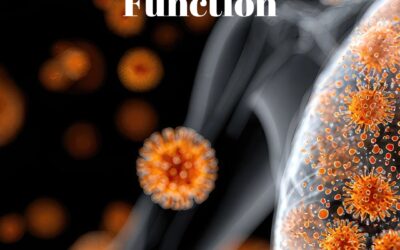Node Smith, ND
A recent murine study further supports using helminth therapies to stimulate the immune system in the prevention and treatment of inflammatory disease.1 This study looked at how the tapeworm, H. diminuta, could decrease occurrence of inflammatory bowel disease (IBD), as well as its treatment.
H. diminuta + IBD
IBD includes colitis as well as crohn’s disease and other inflammatory conditions of the digestive tract that are severe and long-standing. Common to IBD are symptoms of pain, diarrhea and reduction of nutrient absorption. Lack of nutrition does result in developmental delays in children, and other problems of deficiency in patients generally.
Helminth therapies
Research has previously seen that adult animals who were infected with parasites showed less severity of IBD symptoms compared to parasite free animals. The theory is that parasites infer “immunological memory” – where the body is faced with a similar issue, and responds with an increase in white blood cells. The question of the current research was if younger animals respond in this same way, and if exposure to parasites earlier in life could infer a preventative effect.
Mice exposed to the parasite, H. diminuta, expelled the tapeworms 10 days after exposure
Young mice were exposed to the parasite, H. diminuta, and 10 days after exposure the mice expelled the tapeworms. This is a normal physiological response indicating the immune system overcame the infection. The mice were then exposed to colitis-causing substances. Those exposed with helminths previously had less severe symptoms of colitis. Also, mice who were treated with an extract made from tapeworms were seen to have higher anti-inflammatory markers and fewer to no colitis symptoms.
Conclusion of the study
The conclusion of the study was of further support of the development of helminth therapy for the treatment and prevention of inflammatory disease in children.
Source:
- Arai T, Lopes F, Shute A, Wang A, Mckay DM. Young mice expel the tapeworm Hymenolepis diminuta and are protected from colitis by triggering a memory response with worm antigen. Am J Physiol Gastrointest Liver Physiol. 2018.
 Node Smith, ND, is a naturopathic physician in Portland, OR and associate editor for NDNR. He has been instrumental in maintaining a firm connection to the philosophy and heritage of naturopathic medicine among the next generation of docs. He helped found the first multi-generational experiential retreat, which brings elders, alumni, and students together for a weekend camp-out where naturopathic medicine and medical philosophy are experienced in nature. Four years ago he helped found the non-profit, Association for Naturopathic ReVitalization (ANR), for which he serves as the board chairman. ANR has a mission to inspire health practitioners to embody the naturopathic principles through experiential education. Node also has a firm belief that the next era of naturopathic medicine will see a resurgence of in-patient facilities which use fasting, earthing, hydrotherapy and homeopathy to bring people back from chronic diseases of modern living; he is involved in numerous conversations and projects to bring about this vision.
Node Smith, ND, is a naturopathic physician in Portland, OR and associate editor for NDNR. He has been instrumental in maintaining a firm connection to the philosophy and heritage of naturopathic medicine among the next generation of docs. He helped found the first multi-generational experiential retreat, which brings elders, alumni, and students together for a weekend camp-out where naturopathic medicine and medical philosophy are experienced in nature. Four years ago he helped found the non-profit, Association for Naturopathic ReVitalization (ANR), for which he serves as the board chairman. ANR has a mission to inspire health practitioners to embody the naturopathic principles through experiential education. Node also has a firm belief that the next era of naturopathic medicine will see a resurgence of in-patient facilities which use fasting, earthing, hydrotherapy and homeopathy to bring people back from chronic diseases of modern living; he is involved in numerous conversations and projects to bring about this vision.





















